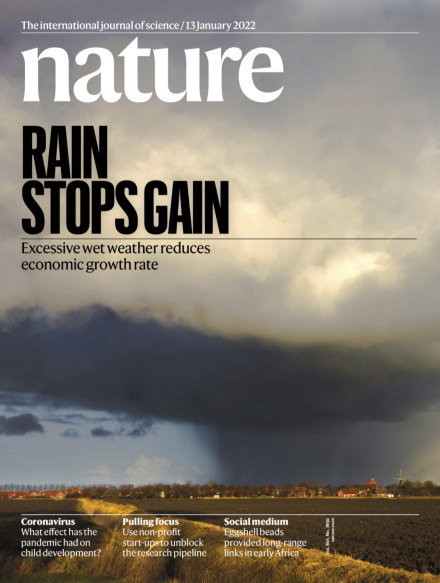Volume 601 Issue 7892, 13 January 2022
This Week
-
Editorial
-
-
World View
-
Research Highlights
News in Focus
-
News Round-Up
-
News
-
Features
Opinion
-
Comment
-
Correspondence
Work
-
Feature
-
Where I Work
Research
-
News & Views
-
Articles

